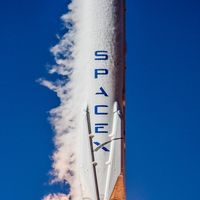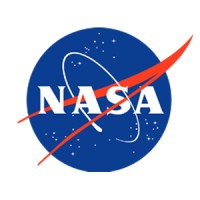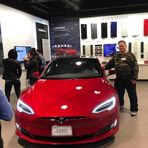The Musk-Trump Nexus: A New Era for Innovation and Regulation
November 9, 2024, 9:35 am

Location: United States, District of Columbia, Washington
Employees: 5001-10000
Founded date: 2002
Total raised: $7.53B

Location: United States, Maryland, Greenbelt
Employees: 10001+
Founded date: 1958
Total raised: $25.7B

Location: United States, Texas, Austin
Employees: 10001+
Founded date: 2003
Total raised: $3.86B
Elon Musk and Donald Trump. Two names that echo through the corridors of power and innovation. Their recent alliance could reshape the landscape of American industry. Musk’s influence on Trump’s administration may lead to a regulatory environment that favors his companies. This partnership is not just about politics; it’s about the future of technology, space exploration, and the very fabric of American entrepreneurship.
Musk has long been a titan in the tech world. His ventures span electric vehicles, space travel, and brain-computer interfaces. Trump’s recent electoral victory presents Musk with a golden opportunity. With a pro-business administration, Musk could push for favorable regulations that benefit his companies. The stakes are high, and the implications are profound.
Musk’s financial backing of Trump is significant. Reports indicate he contributed over $119 million to pro-Trump initiatives. This investment is not merely political; it’s strategic. Musk’s clout could help him navigate the complex web of federal regulations that govern his industries. He has often lamented the burdensome nature of these regulations. A streamlined, unified federal approach could be the key to unlocking his ambitions.
Take Tesla, for instance. Musk aims to roll out fully autonomous vehicles in California and Texas. However, this vision hinges on regulatory approval. Currently, the patchwork of state regulations poses a challenge. A unified federal framework could pave the way for Tesla’s driverless cars. This would not only benefit Musk but also set a precedent for the future of transportation.
Musk’s ambitions extend beyond Earth. His dream of colonizing Mars is well-known. Under a Trump administration, this dream could gain momentum. The Artemis program, which aims to return humans to the Moon, may shift focus toward Mars. This could mean increased funding and support for SpaceX. The prospect of uncrewed missions to Mars within the decade is tantalizing. Musk’s vision of a human presence on the Red Planet could become a national priority.
Yet, this partnership raises questions. What happens when a single individual wields such influence over regulatory bodies? Musk’s companies already operate in highly regulated sectors. SpaceX, for example, has benefited from NASA’s reliance on its capabilities. The agency has invested billions in Musk’s ventures. This dependence creates a delicate balance. While Musk pushes for fewer regulations, the safety of workers and the public must remain paramount.
Reports have surfaced about safety violations at SpaceX. Injuries at its facilities have exceeded industry averages. Yet, regulatory bodies have been slow to act. This raises concerns about accountability. A more lenient regulatory environment could exacerbate these issues. The risks associated with rocket launches and autonomous vehicles are significant. The potential for catastrophic failures looms large.
Musk’s frustrations with the FDA are also noteworthy. His brain-implant company, Neuralink, has faced delays in human trials. Musk’s growing influence could lead to changes in the approval process. If he gains a position of power in a Trump administration, the FDA’s pace could quicken. This prospect is both exciting and alarming. Rapid innovation must not come at the expense of safety.
The implications of this alliance extend beyond Musk’s companies. The broader tech industry could feel the ripple effects. A regulatory environment that favors innovation could spur growth. Startups may find it easier to navigate the bureaucratic maze. However, this could also lead to a race to the bottom in safety standards. The balance between innovation and regulation is delicate.
Musk’s vision is ambitious. He aims to revolutionize transportation, space travel, and even human cognition. But with great power comes great responsibility. The potential for abuse of influence is real. The public must remain vigilant. Oversight is crucial to ensure that innovation does not come at the cost of safety and ethics.
As Musk and Trump forge their partnership, the world watches. The future of American industry hangs in the balance. Will this alliance lead to a new era of innovation? Or will it usher in a period of unchecked ambition? The answers remain to be seen. One thing is clear: the Musk-Trump nexus is a force to be reckoned with. The implications of their alliance will shape the future of technology, regulation, and the very essence of American entrepreneurship.
In this new landscape, the lines between innovation and regulation blur. The stakes are high, and the consequences are profound. As we move forward, the need for balance is paramount. The future is bright, but it must be approached with caution. The journey ahead is fraught with challenges, but the potential rewards are immense. The world is watching, and the clock is ticking.
Musk has long been a titan in the tech world. His ventures span electric vehicles, space travel, and brain-computer interfaces. Trump’s recent electoral victory presents Musk with a golden opportunity. With a pro-business administration, Musk could push for favorable regulations that benefit his companies. The stakes are high, and the implications are profound.
Musk’s financial backing of Trump is significant. Reports indicate he contributed over $119 million to pro-Trump initiatives. This investment is not merely political; it’s strategic. Musk’s clout could help him navigate the complex web of federal regulations that govern his industries. He has often lamented the burdensome nature of these regulations. A streamlined, unified federal approach could be the key to unlocking his ambitions.
Take Tesla, for instance. Musk aims to roll out fully autonomous vehicles in California and Texas. However, this vision hinges on regulatory approval. Currently, the patchwork of state regulations poses a challenge. A unified federal framework could pave the way for Tesla’s driverless cars. This would not only benefit Musk but also set a precedent for the future of transportation.
Musk’s ambitions extend beyond Earth. His dream of colonizing Mars is well-known. Under a Trump administration, this dream could gain momentum. The Artemis program, which aims to return humans to the Moon, may shift focus toward Mars. This could mean increased funding and support for SpaceX. The prospect of uncrewed missions to Mars within the decade is tantalizing. Musk’s vision of a human presence on the Red Planet could become a national priority.
Yet, this partnership raises questions. What happens when a single individual wields such influence over regulatory bodies? Musk’s companies already operate in highly regulated sectors. SpaceX, for example, has benefited from NASA’s reliance on its capabilities. The agency has invested billions in Musk’s ventures. This dependence creates a delicate balance. While Musk pushes for fewer regulations, the safety of workers and the public must remain paramount.
Reports have surfaced about safety violations at SpaceX. Injuries at its facilities have exceeded industry averages. Yet, regulatory bodies have been slow to act. This raises concerns about accountability. A more lenient regulatory environment could exacerbate these issues. The risks associated with rocket launches and autonomous vehicles are significant. The potential for catastrophic failures looms large.
Musk’s frustrations with the FDA are also noteworthy. His brain-implant company, Neuralink, has faced delays in human trials. Musk’s growing influence could lead to changes in the approval process. If he gains a position of power in a Trump administration, the FDA’s pace could quicken. This prospect is both exciting and alarming. Rapid innovation must not come at the expense of safety.
The implications of this alliance extend beyond Musk’s companies. The broader tech industry could feel the ripple effects. A regulatory environment that favors innovation could spur growth. Startups may find it easier to navigate the bureaucratic maze. However, this could also lead to a race to the bottom in safety standards. The balance between innovation and regulation is delicate.
Musk’s vision is ambitious. He aims to revolutionize transportation, space travel, and even human cognition. But with great power comes great responsibility. The potential for abuse of influence is real. The public must remain vigilant. Oversight is crucial to ensure that innovation does not come at the cost of safety and ethics.
As Musk and Trump forge their partnership, the world watches. The future of American industry hangs in the balance. Will this alliance lead to a new era of innovation? Or will it usher in a period of unchecked ambition? The answers remain to be seen. One thing is clear: the Musk-Trump nexus is a force to be reckoned with. The implications of their alliance will shape the future of technology, regulation, and the very essence of American entrepreneurship.
In this new landscape, the lines between innovation and regulation blur. The stakes are high, and the consequences are profound. As we move forward, the need for balance is paramount. The future is bright, but it must be approached with caution. The journey ahead is fraught with challenges, but the potential rewards are immense. The world is watching, and the clock is ticking.